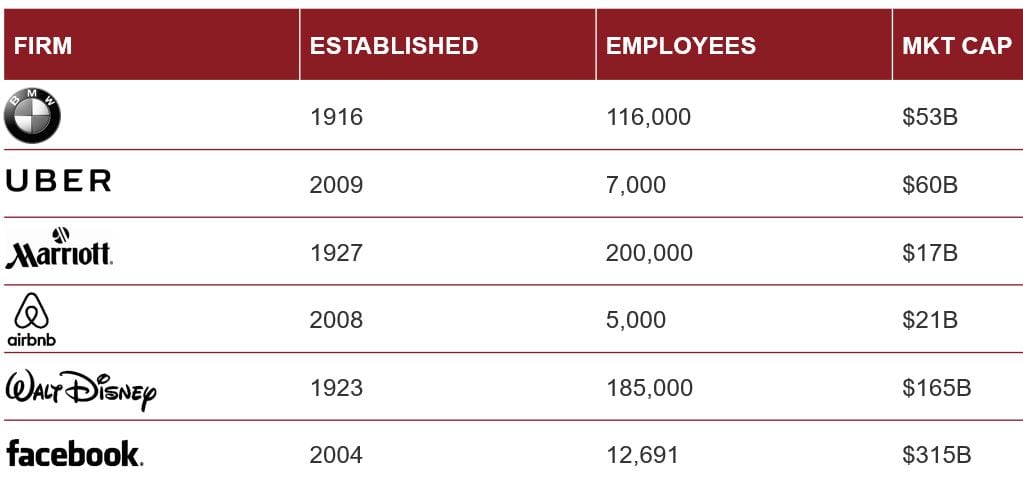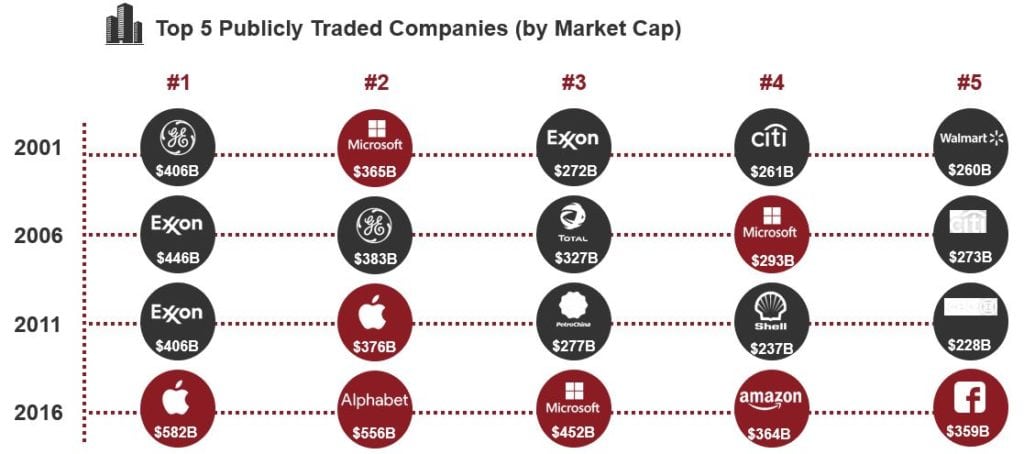
We talk about platform companies, and many use the famous TechCrunch quote to illustrate this:
Uber, the world’s largest taxi company, owns no vehicles. Facebook, the world’s most popular media owner, creates no content. Alibaba, the most valuable retailer, has no inventory. And Airbnb, the world’s largest accommodation provider, owns no real estate. Something interesting is happening.
Something interesting is definitely happening, and that statement is now over three years old. I’ve used it for a while, but it’s evolved, particularly as I heard Geoffrey Parker, co-author of The Platform Revolution, speaking. He had one slide which I’ve always used ever since.
And when I talk about this slide and another that shows the valuation of these companies.
I realised that we are clearly seeing the difference between an industrial-era company and a digital-era company. An industrial-era company made everything, controlled everything and distributed everything; a digital-era company makes nothing, controls nothing and distributes nothing … but they connect everything.
That is the critical point:
Digital companies make nothing but connect everything; industrial companies make everything and connect nothing.
This clearly delineates the industrial age firms from those for the digital age. In fact, someone asked me to define digital transformation the other day and my reply was:
Most companies were born in the industrial age and are trying to evolve to be digital. However, the truly digital companies were born on the internet. For industrial-era companies to transform to be truly digital, they have to completely transform their business to have its core foundation built on the internet. Businesses cannot evolve to be digital, as such strategies leave the core foundations to be firmly industrial.
Any comment?
Chris M Skinner
Chris Skinner is best known as an independent commentator on the financial markets through his blog, TheFinanser.com, as author of the bestselling book Digital Bank, and Chair of the European networking forum the Financial Services Club. He has been voted one of the most influential people in banking by The Financial Brand (as well as one of the best blogs), a FinTech Titan (Next Bank), one of the Fintech Leaders you need to follow (City AM, Deluxe and Jax Finance), as well as one of the Top 40 most influential people in financial technology by the Wall Street Journal's Financial News. To learn more click here...



